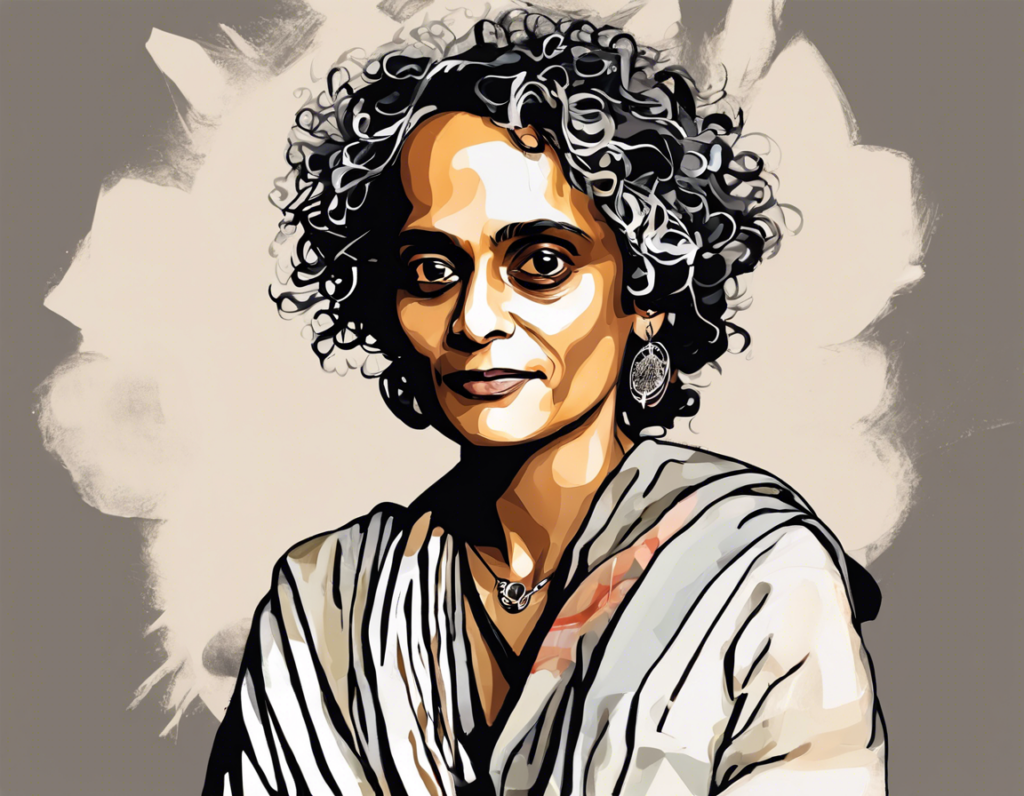Arundhati Roy is a name that resonates with literary enthusiasts around the globe. The Indian author burst onto the international literary scene with her debut novel, “The God of Small Things,” which won the prestigious Man Booker Prize in 1997. Since then, Roy has continued to captivate readers with her poignant writing, insightful essays, and unapologetic activism. In this detailed exploration, we will delve into the literary world of Arundhati Roy, examining her notable works, writing style, themes, and impact on society.
The Rise of a Literary Icon
Born in 1961 in Shillong, India, Arundhati Roy spent her formative years in Kerala. Her diverse background and keen observations of Indian society deeply influenced her writing. “The God of Small Things,” her first and most acclaimed novel, is a masterpiece of storytelling that weaves together themes of love, loss, caste, and forbidden relationships. The novel’s non-linear narrative structure and lyrical prose style set it apart as a modern classic.
Exploring Themes and Social Issues
Arundhati Roy’s writing is characterized by a deep engagement with social and political issues. In both her fiction and non-fiction works, she fearlessly tackles topics such as poverty, environmental degradation, the rights of indigenous peoples, and the impacts of globalization. Roy’s commitment to social justice is evident in her advocacy for marginalized communities and her criticism of political power structures.
Writing Style and Language
Roy’s writing style is often described as poetic, evocative, and richly detailed. She has a unique ability to paint vivid images with her words, transporting readers to the lush landscapes of Kerala or the bustling streets of Delhi. Her prose is imbued with a deep sense of empathy and a keen awareness of the complexities of human relationships. Roy’s use of language is both lyrical and incisive, drawing readers into the emotional depths of her characters’ lives.
Notable Works
Aside from “The God of Small Things,” Arundhati Roy has written several other acclaimed works. Her essay collections, such as “The Algebra of Infinite Justice” and “War Talk,” showcase her sharp intellect and fearless critique of global politics. Roy’s novel “The Ministry of Utmost Happiness” delves into themes of identity, resistance, and the search for belonging in a fractured world. Each of Roy’s works offers a unique perspective on the human experience, challenging readers to confront uncomfortable truths and envision a more just society.
Impact and Legacy
Arundhati Roy’s influence extends far beyond the realm of literature. She is a prominent voice in the global struggle for social and environmental justice, speaking out against injustice and advocating for the rights of the oppressed. Roy’s work has inspired countless readers to examine their own beliefs and take action to create a more equitable world. Her fearless advocacy and unwavering commitment to truth have solidified her legacy as a literary icon and a champion of social change.
Frequently Asked Questions (FAQs)
1. What is Arundhati Roy best known for?
Arundhati Roy is best known for her debut novel, “The God of Small Things,” which won the Man Booker Prize in 1997 and catapulted her to international literary fame.
2. How has Arundhati Roy’s activism influenced her writing?
Arundhati Roy’s activism is deeply intertwined with her writing, as she often uses her platform to shed light on social and political issues and advocate for marginalized communities.
3. What are some common themes in Arundhati Roy’s work?
Themes of love, loss, social inequality, caste, environmentalism, and political resistance are recurrent in Arundhati Roy’s writing, both in her fiction and non-fiction works.
4. How does Arundhati Roy’s writing style impact her storytelling?
Arundhati Roy’s poetic and evocative writing style enhances the emotional depth of her storytelling, drawing readers into the intricate lives of her characters and the complex social issues she explores.
5. What is the significance of Arundhati Roy’s non-fiction works?
Arundhati Roy’s non-fiction works, such as her essays and speeches, serve as powerful critiques of global politics, capitalism, and social injustice, further establishing her as a leading voice for change.
In conclusion, Arundhati Roy’s literary world is a rich tapestry of storytelling, activism, and social commentary. Her works continue to resonate with readers across the world, challenging us to confront uncomfortable truths and envision a more just society. Through her writing, Roy invites us to explore the complexities of the human experience and embrace a spirit of empathy and solidarity.
